My health in the balance
Concerns remain over the digital record scheme’s security, growing cost and efficacy.
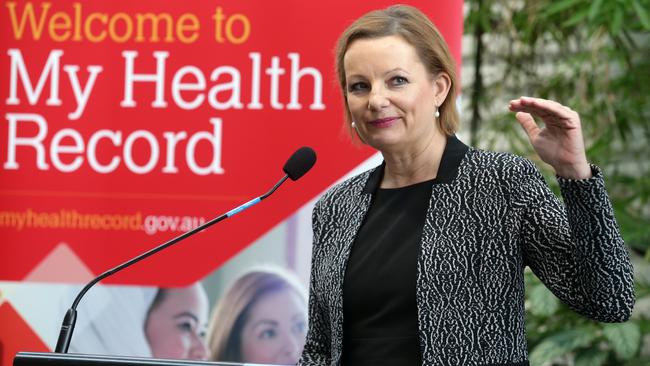
If the decision last week to extend the opt-out period for the My Health Record scheme was intended to bring more certainty to the process and resolve lingering concerns over privacy and security then it still has some way to go.
Electronic health records so far have cost taxpayers close to $2 billion through changes of government, changes of minister and changes of design, and with implementation now drifting into another year. Australians have been given until January 31 to decide whether to opt out of a My Health Record or have one created for them. The success of the scheme depends very much on public and health sector confidence in its potential benefits — and at the moment you could be forgiven for thinking that confidence is well and truly shot.
The best-case scenario, depending on who you believe and what happens in the coming months, is that more than 20 million Australians will have a My Health Record with a shared health summary, copies of clinical records, scans and medication history, updated and available to their treating doctor if and when required. Across time this will improve care, avoid errors, save money and give patients an unprecedented level of control over information kept under their name (provided they know how to exercise that control).
The worst-case scenario, as outlined by critics in recent months, is that bungled implementation and poor consumer awareness will allow private medical records to be hacked via the My Health Record instead of the host database, or somehow sold off, or used to facilitate domestic abuse and discrimination in insurance and the workplace. Even one instance where those fears are realised would be shocking and abhorrent.
Of course, there is another possible outcome for the My Health Record plan, one that is not talked about much but that those in the know, whatever side they’re on, are desperate to avoid: more than 20 million Australians are given a record, but doctors are too busy or too conservative to use it, their patients are too sceptical to ask and My Health Record becomes another tombstone in the graveyard of Aussie innovation.
Australian Medical Association president Tony Bartone says there needs to be the “push-pull” to drive improvement in healthcare technologies, the connectivity and utility of devices already being developed to benefit patients and data analysis to improve outcomes.
Bartone, who was elected in May, soon after it was announced the opt-out period for My Health Record would begin in July, fears that Australia has been slow to implement such reforms.
“The My Health Record isn’t the best thing since sliced bread — far from it — but it’s a lot better than what we’ve got out there at the moment by a country mile,” says Bartone (who previously described the scheme as a “dog” but, perhaps out of loyalty, the best dog around). He maintains My Health Record has the potential to transform healthcare and, contrary to popular belief, give patients more control over their medical information.
Royal Australian College of General Practitioners president Harry Nespolon argued that as time to opt out diminished: “The legislation has not been resolved, there is no guarantee it will get all the way through parliament. We have been saying all along, until the privacy issues have been solved … stay out.”
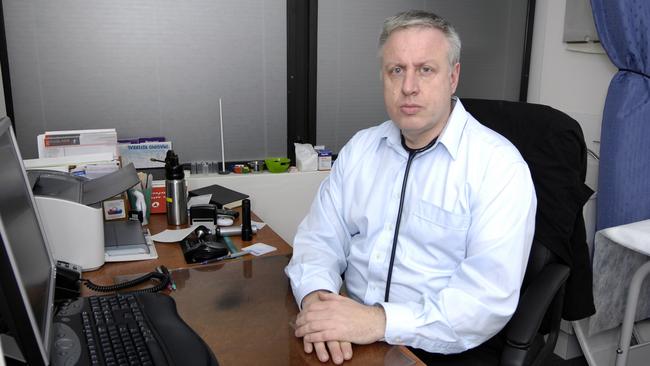
When the government capitulated, the college tweeted: “The federal government has listened.”
In the end, the decision to push back the end of the opt-out period — and the subsequent mass record creation — was a political one, after months of debate, speculation, information and misinformation (and another untimely glitch at the Australian Digital Health Agency). Whether to have a My Health Record is a personal choice, based on factors and considerations that differ for every Australian, but giving people more time was a political choice, influenced in part by the looming federal election.
Federal Health Minister Greg Hunt and opposition health spokeswoman Catherine King both have a My Health Record, along with six million other Australians who have proactively signed up or been signed up. Yet Hunt and King continue to clash over the issue — and even contradict their previous positions — as the election draws near, appearing desperate to score political points or avoid political damage at all costs. As previous election campaigns have shown, politicising health can bring overreach and overcorrection, regardless of what may be best for consumers. The stakes will be high next year.
Hunt already had extended the opt-out period by a month and was adamant it would end last Thursday. He said he wanted Australians to realise the benefits of the scheme as soon as possible and had engaged with the other parties on legislative amendments.
However, with the design of My Health Record still being finalised at such a late stage, the opposition called last week for a one-year extension of the opt-out period. Labor appeared poised to gain Senate support for the move, which would have forced the government to agree or refuse (politically, a loss either way for Hunt). However, after the Coalition embarked on some backroom negotiations, One Nation was convinced to move an amendment for the shorter extension, which was backed by the Senate and welcomed by Hunt.
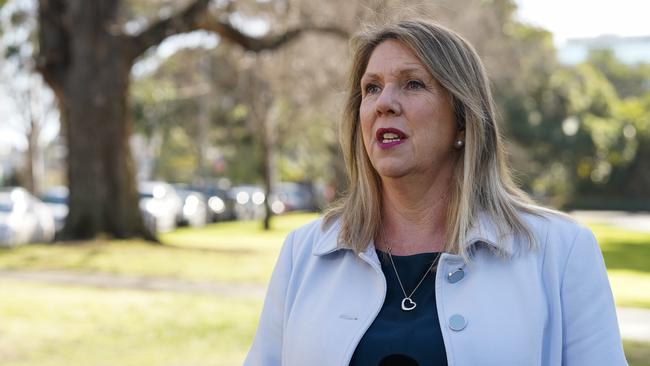
“That’s to give people more time and I’m happy to do that,” Hunt said after the Senate vote.
But the minister wasn’t happy to do that. In fact, Hunt had already given another month for people to opt out and repeatedly said there was no need for any longer. King tweeted: “You’re a liar, Minister. It took Labor’s legislative amendment to force your hand into a hurried compromise with the crossbench.”
Hunt sought to portray the compromise as an attempt to stop Labor delaying or derailing the scheme, and wanted to appear relaxed about the outcome. Maybe it was the best of a bad situation politically, it was a certainly a better outcome for the Coalition than a 12-month extension and could see the heat taken out of the issue over summer.
“This system has been a decade and a half in the making,” Hunt said. “And, ultimately, at the end of the day, people can opt out at any time during their lives.”
The latter point — that people can effectively opt out at any time — was only possible as a result of the minister’s earlier concessions on the scheme. After the opt-out period had started, the AMA and RACGP pressed for what has been described as a “hard delete” option to remove any shell of a record as well as a tightening of the requirements on law enforcement agencies wanting access.
After a Senate inquiry made a raft of further recommendations, Hunt declared his intention to more than double the criminal and civil penalties for misuse of electronic health records and also clarify other restrictions and improve public awareness. In doing so, he emphasised that there had been no reported cases of misuse of My Health Record in six years.
Hunt has said the opt-out rate of 4 per cent so far, likely to be about 10 per cent by the end of January, is lower than anyone expected. The ADHA has said publicly only that it expects a majority of Australians to take part.
Bartone is a GP and, apart from the AMA negotiations on the future of the My Health Record, has been asked by his patients what they should do. He tells them it is their choice to make, perhaps a balance between the risk of breaches, however small, and the comfort of knowing their information is available when and where their health requires it.
“They say, Doc, why wouldn’t I want it, to have that information available when it’s needed?” he says. The AMA president says he believes the outstanding issues are being resolved and it is time to move ahead with certainty rather than keep “kicking the can down the road”.
There are legislative amendments still hanging over the My Health Record, which probably will be voted on and accepted by parliament before the opt-out period ends. King had wanted a 12-month extension to also allow for a Privacy Commissioner review of outstanding concerns, something a Labor government would probably undertake anyway if elected.
“There (are) also many Australians who are yet to engage or understand what this means,” King said last week.
“The system was originally designed as opt in, based on informed consent. The government’s move to an opt-out process (means) … they need to get the privacy right so that people understand what it is and isn’t, and how it will be used by healthcare providers and by second parties as well.”
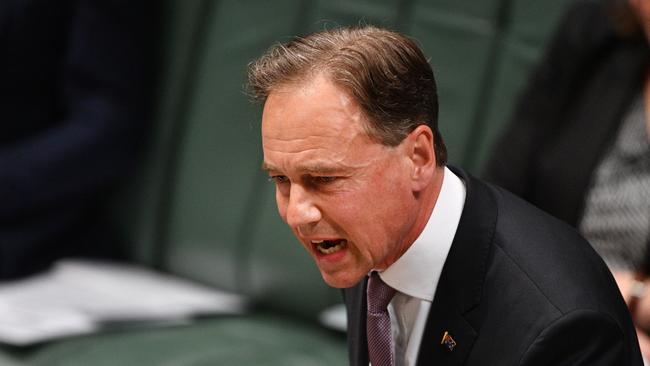
Yet King overlooks Labor’s own positioning on electronic health records and how she herself has come to a determination of “what it is and isn’t”. Apart from calling for a bigger public information campaign early on, she has been like every other stakeholder in this process — the minister, the ADHA and the key health groups — in having to be led by the public and media reaction to concerns raised in the most part by third parties. That may be an adequate approach under the circumstances but across time it surely adds to a lack of public confidence.
Hunt showed his sensitivity on this point after he confirmed his second round of changes to alleviate security and privacy concerns. In doing so, however, he may have also left the Coalition exposed in that he has been making changes demanded of him at the last minute, not having been able to pre-empt them or alleviate concerns earlier in the process.
“Labor and the Greens didn’t raise these concerns in the original legislation, they didn’t raise them in 2015, they didn’t raise them when COAG (the Council of Australian Governments) unanimously approved opt out, they didn’t raise them when opt out was announced in May and indeed Catherine King welcomed it and criticised the fact it hadn’t happened earlier,” Hunt told The Australian.
By the following day, Hunt had also agreed to a review of whether it was appropriate for parents to have default access to the records of 14 to 17-year-olds, noting that teenagers already had the power to remove their parents’ access. Of course, there have already been multiple parliamentary inquiries, privacy reviews and a trial, all of which are only as good as their terms of reference and the resourcing available to them.
A lack of confidence brings a lack of momentum and if My Health Record isn’t embraced by Australians and the health system itself, it will become a costly, risky white elephant (although that would lessen its appeal to hackers).
Rightly or wrongly, Labor will raise the implementation of My Health Record in the election campaign, when voters will hear all about its tortured history. Given the success of previous, ill-defined, Medicare-led campaigns, you can expect My Health Record to be tied to other problems with Medicare and human services payment systems, delays with the National Cancer Screening Register and IT bungles in different portfolios. In much the same way as people are advised to be alert for the telltale signs of suspicious emails or websites, to avoid being scammed, Labor will use these disparate elements to, again, warn of a re-elected Coalition government.
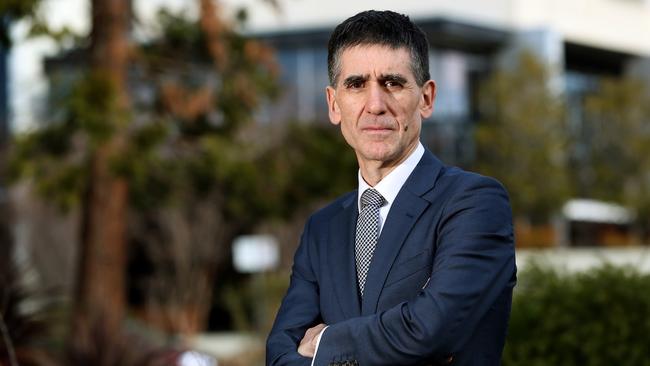
Yet there is sleeper issue, and one that puts My Health Record at the heart of the system, and at the heart of the looming election campaign. The AMA and RACGP are already lobbying the major parties to significantly increase investment in Medicare, following years of frozen indexation and cuts to other services, and neither Hunt or King have responded.
Bartone says the government must recognise that doctors updating the My Health Record will require “resources, time and opportunity”. To be the gatekeepers someone needs to pay the toll.
“Creating the file is one thing but it is another thing altogether to upload information to ensure there is the right amount of quality information at any given time,” Bartone says. “That is going to require a significant amount of additional work from GPs. Unless we are supported to do that we will only be getting half the story from the My Health Record.”
Disclosure: Sean Parnell has opted in, partly to remain informed as a journalist and consumer, and his My Health Record contains only some scripts uploaded by the government. He believes others should make their own decisions. For more information, go to myhealthrecord.gov.au.

To join the conversation, please log in. Don't have an account? Register
Join the conversation, you are commenting as Logout